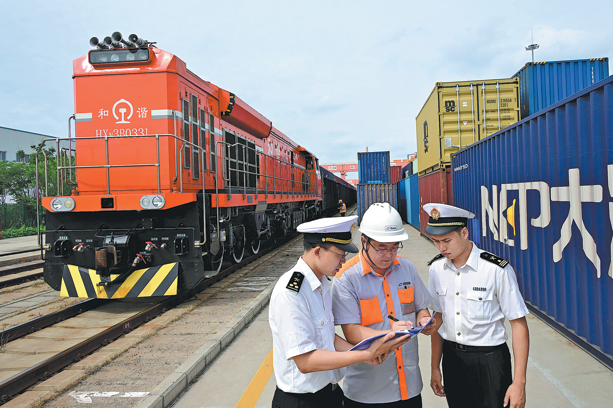Smart energy grids need global push
China's COP30 delegation calls for collaboration to aid sustainable goals

Li Gao, head of the Chinese delegation at this year's United Nations climate change conference, or COP30, called for a global effort to develop and reduce the cost of key technologies for smart energy grids.
Li, who is China's vice-minister of ecology and environment, said such breakthroughs are urgently needed to ensure power systems can absorb the world's rapidly expanding renewable energy capacity.
He made the remarks on Tuesday at an event themed "Carbon Neutrality and Energy System Transformation (CNEST): Advancing Technology, Industry, and Policy Innovations and International Collaboration", held at the COP30 China pavilion in Belem, Brazil.
Li pointed to what he described as a dual reality in China's energy transition: major strides in renewable power development alongside persistent, serious challenges.
"China has established the world's largest and fastest-growing renewable energy system," he said.
As of the end of June, China's total installed renewable energy capacity reached 2,160 gigawatts, representing more than 40 percent of the global total and exceeding the combined capacity of any other regions, he said.
Installed wind and solar capacity reached 1,670 GW, surpassing the nation's 2030 target of 1,200 GW six years ahead of schedule, he added.
"Currently, one out of every three kilowatt-hours of electricity consumed in China comes from clean energy sources," Li said.
He noted that China has made significant contributions to global renewable energy development, helping reduce the average cost of electricity from global wind power projects by 60 percent and from solar photovoltaic projects by 80 percent over the past decade.
But he warned that the rapid scaleup of renewable installations is "posing a severe test" to the grid's capacity to absorb them. The integration of renewables at scale is straining the grid and demanding greater stability and flexibility, Li said. Building a smarter, more flexible grid has therefore become an urgent priority.
A digital and intelligent overhaul of the energy system is now seriously needed, he said, adding that success depends on using advanced communications technologies to give the grid stronger perception, analysis and coordinated-control capabilities.
Li praised the CNEST program as a platform for the global cooperation required to address these challenges. The initiative, launched by Tsinghua University in 2023, aims to unite scientists, engineers and industry leaders in building an international, open platform for collaborative innovation. It seeks to pool global expertise to advance next-generation energy systems and support carbon neutrality goals.
Li urged more joint efforts to overcome key technical barriers and reduce costs in the development of smart grids. He also called for stronger links between research and industry to ensure scientific breakthroughs translate into viable commercial applications.
Also addressing the event, Ariesta Ningrum, director of the Climate Technology Centre and Network at the United Nations Environment Programme, emphasized the critical role of collective action in tackling the climate crisis, particularly on the technology front.
In 2024, the global average temperature increase exceeded 1.5 C above the pre-industrial levels for the first time, she stated.
"The world cannot afford delays," Ningrum said. "Our collective choices over the next decade will determine whether we can preserve a livable planet."
Highlighting international collaboration as the most crucial form of partnership, she said energy system transformation "is not competition, but a shared global mission".
"Achieving carbon neutrality is no longer a distant goal. It is an immediate imperative. And technology is a connector between ambition and implementation," she said.
Today's Top News
- Economy seen on steady track
- Trade-in program likely to continue next year
- Li: SCO can play bigger role in governance
- Huangyan Island protection lifeline for coral ecosystem
- Latin America urgently needs green credit
- AI innovation powers China's lead in smart eyewear






























